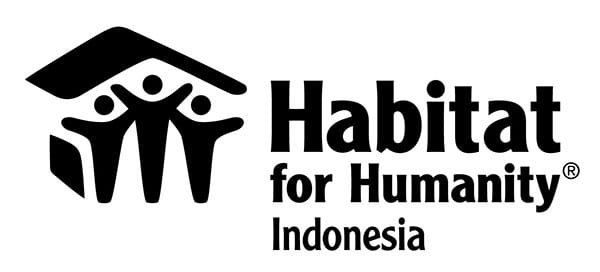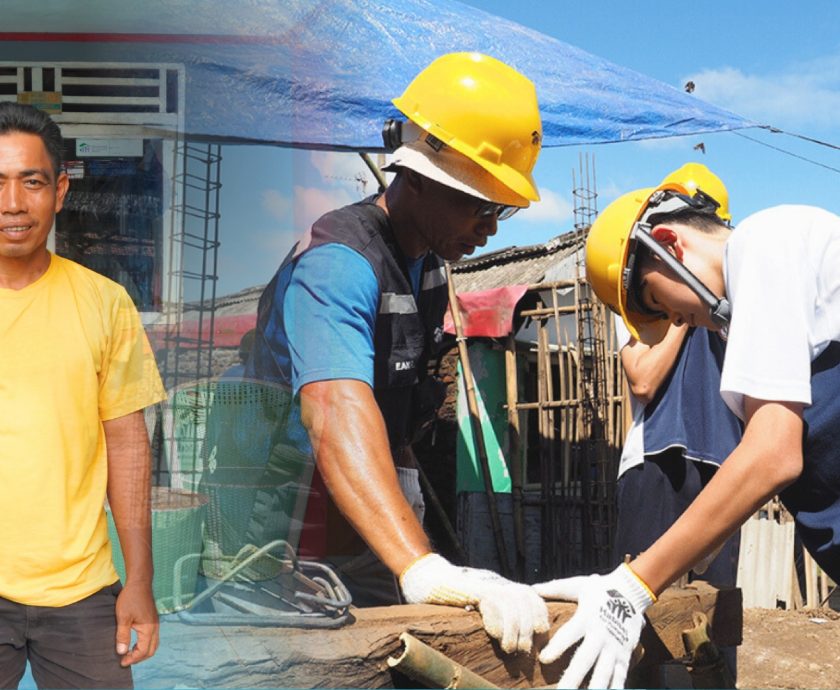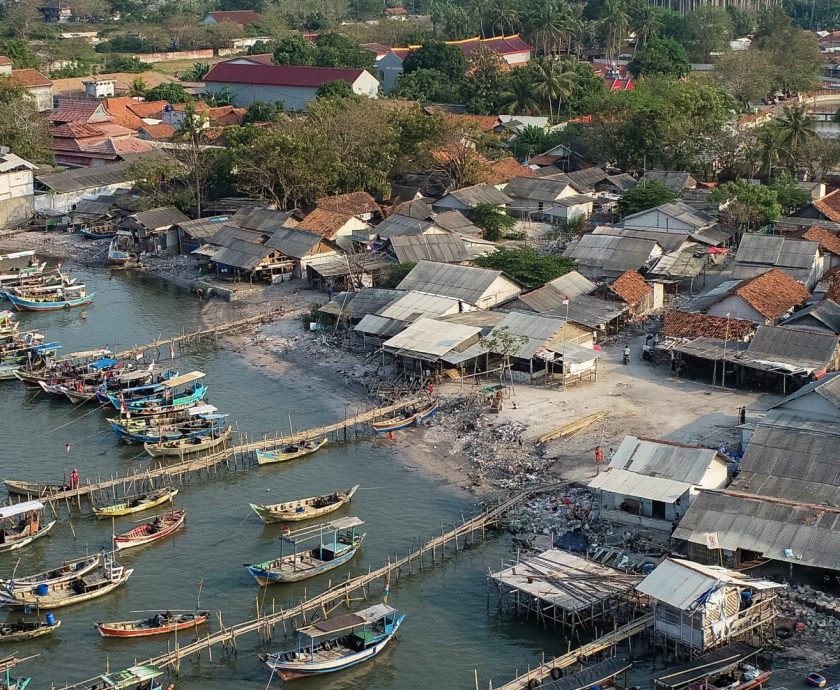Habitat for Humanity Indonesia, in collaboration with the Federal Ministry for Economic Cooperation and Development of Germany, has initiated Work Competency Certification (SKK) and Occupational Health and Safety (K3) training for 600 construction workers in Banten Province.
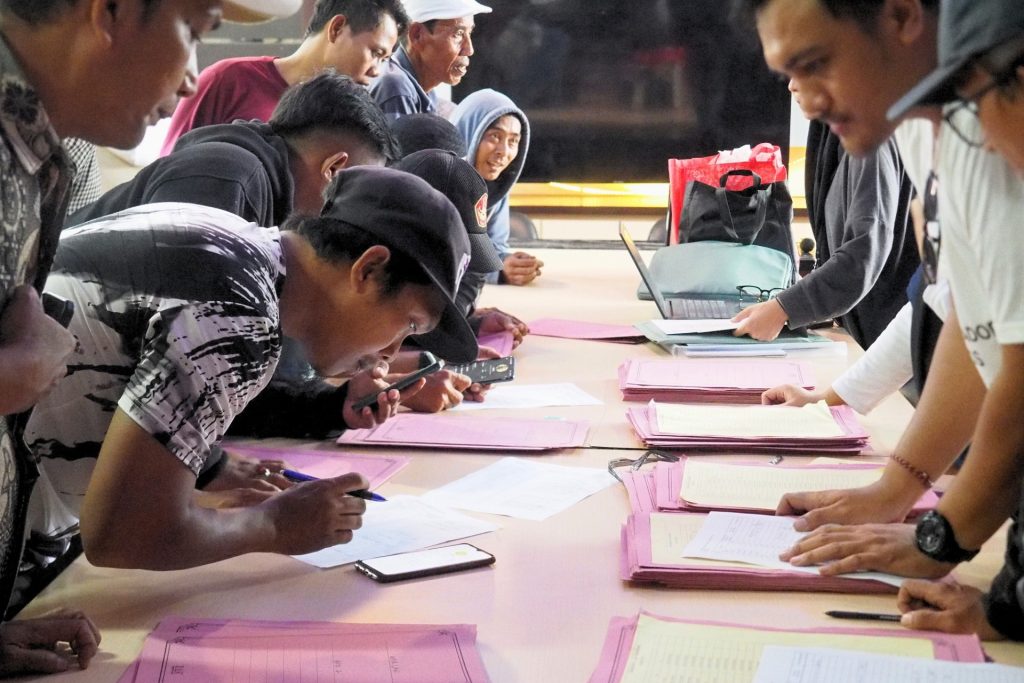
For over 30 years working as a construction worker, Sugiyono, a man from Ketapang Village, Mauk District, Tangerang Regency, never imagined he would obtain an official certificate recognizing his skills.
His hands, which had mostly been used to lay bricks and mix cement, now hold a certificate— a testament to his skills.
“Having worked as a construction worker for over 30 years, this is the first time I’ve had a certificate that officially recognizes my skills,” Sugiyono said when met after participating in the Wall Installation Competency Unit training.
Meanwhile, Muflikan, a worker from Marga Mulya Village who also participated in the training, expressed similar joy.
“Finally, I have official certification. I’ve been waiting for this moment after twenty-five years of working in construction. It’s different now—it becomes quite hard for me to find work. Every time I apply to foremen, contractors, or even directly to homeowners, they always ask if I have a certificate or not,” he said.
This situation is not only felt by Sugiyono and Muflikan. In the rapidly developing construction industry, the demand for work competency certification is increasingly high. Of the 8.3 million construction workers in Indonesia, only 7.4% (or around 616,000) have certificates (BPS, 2018). This number is far from sufficient to meet the industry standards that increasingly require formal credentials amid tight competition.
600 Certified Construction Workers
Seeing this gap, Habitat for Humanity Indonesia, together with the Federal Ministry for Economic Cooperation and Development of Germany, initiated a training program for Work Competency Certification (SKK) and Occupational Health and Safety (K3).
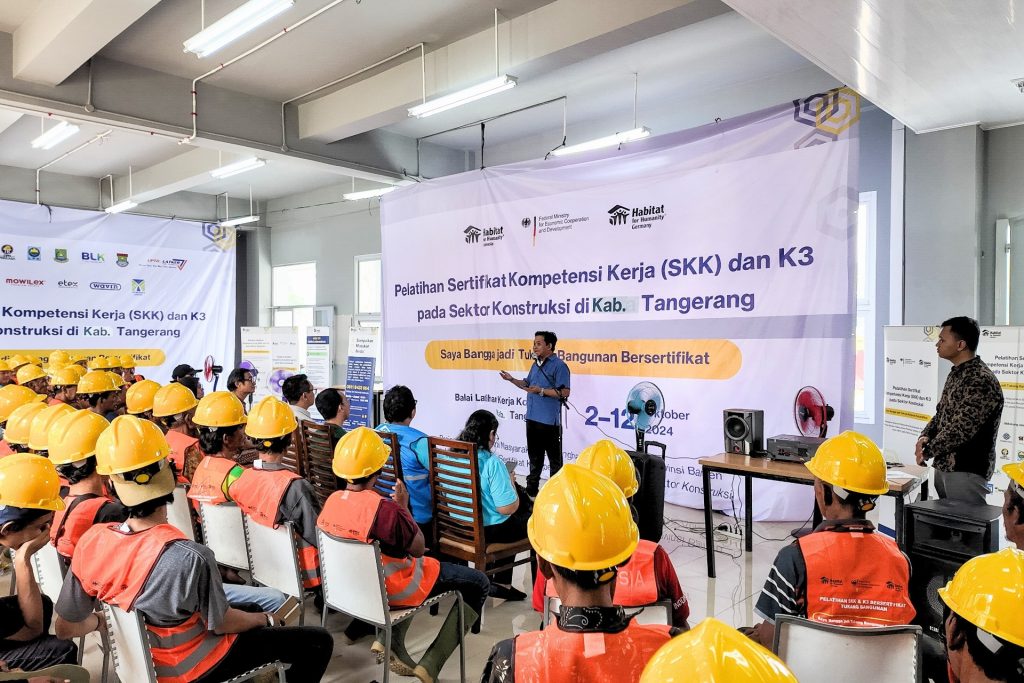
This training aims to help construction workers like Sugiyono and Muflikan obtain nationally recognized official certificates. The training was held at the Cipondoh Labor Training Center in Tangerang City and the Kosambi Labor Training Center in Tangerang Regency, targeting over 600 construction workers.
The program is divided into three training phases. The first phase included 210 workers, held from September 20-30, 2023, followed by 240 workers in the second phase scheduled for March 20-30, 2024, and 150 workers in the third phase that just took place from October 3-12, 2024.
During the 10-day training, participants were equipped with practical and technical knowledge according to various competency units. Starting from the Pipe Competency Unit, Lightweight Steel Roof, Paint, Tile Installation, Ceramic, Marble, Terrazzo, to Wall Installation, all training was adjusted to the Indonesian National Work Competency Standards (SKKNI) for the Construction Sector.
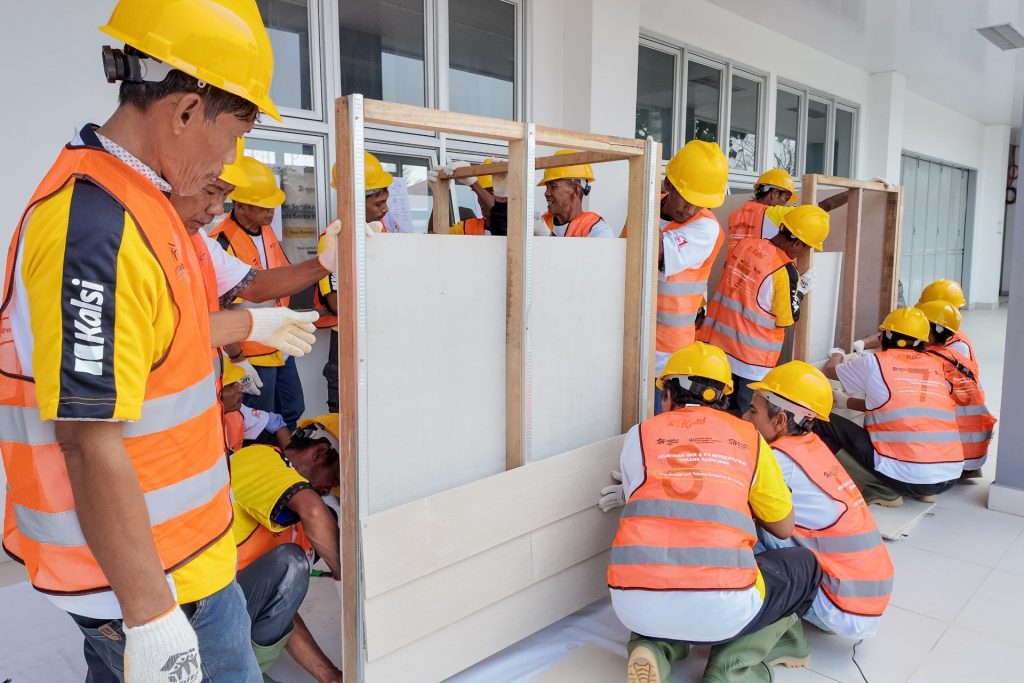
For Abdul Aziz, a worker participating in the Paint Competency Unit, this experience brings a breath of fresh air. “I learned a lot of new knowledge. I was taught better and more efficient practices. Not only that, but in the end, I could obtain a certificate that I can present when applying for jobs later,” Abdul said.
During the training, participants not only received technical training but were also assessed by assessors from the National Professional Certification Agency (BNSP) on the last day. These assessors evaluated the eligibility of participants for obtaining certificates based on the applicable standards.
One assessor, Bambang, stated that this program significantly impacts workers. “Certification is very important because workers also need to have official proof that recognizes their skills. From my observations, participants appeared more confident after participating in this program,” Bambang said.
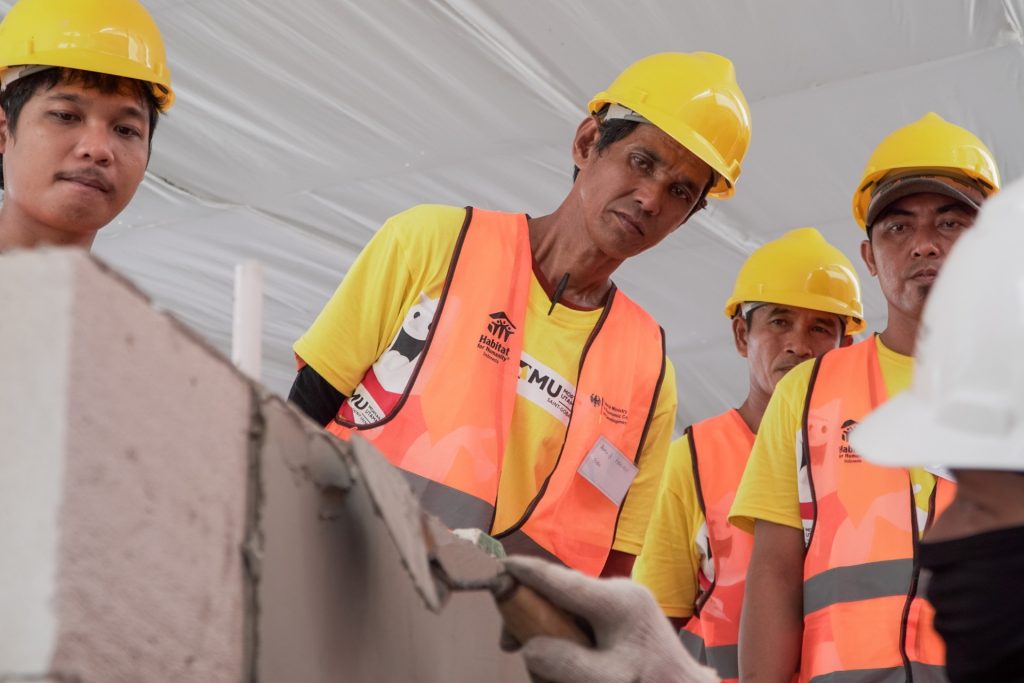
Tirta Mustika Ratih, Head of the Construction Service Guidance Team for Settlement Areas at the Housing, Settlements, and Land Office of Tangerang City, also emphasized the importance of this certificate. “This certificate is a mandate of the law. The government has an obligation to ensure that all construction workers have certificates. This certificate gives them permission to work and is valid for the next five years,” Tirta explained.
With certificates in hand, many participants feel more confident facing challenges in the workforce. Ali Anwar, a worker in the Lightweight Steel Roof Competency Unit, admitted that this certification gives him new hope. “Now I feel more confident and ready to find better work. This certificate is a significant asset to convince potential employers,” Ali said.
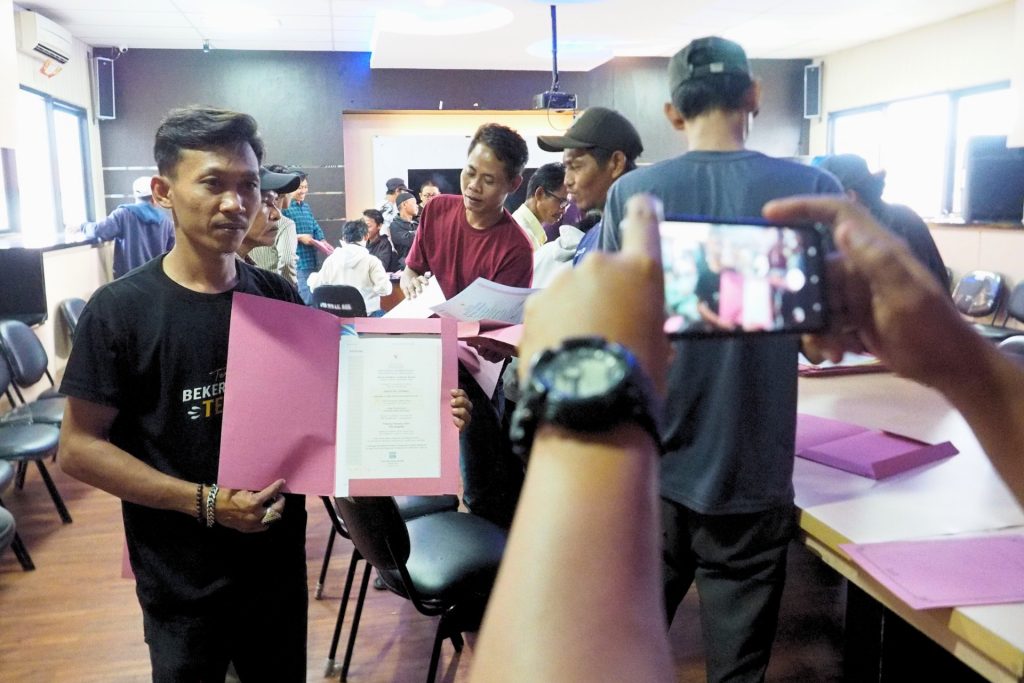
Multilateral Support
This program certainly benefits from the support of several parties, such as PT Mowilex Indonesia, PT Wavin Indonesia, PT Tata Metal Lestari, PT Tatalogam Lestari, PT Mortar Utama (Saint-Gobain), and PT Etex Building Performance Indonesia. Their support in the form of financial aid, materials, and trainers enabled the smooth execution of this program.
The collaboration between Habitat for Humanity Indonesia, the German government, Habitat for Humanity Germany and these companies is not just an effort to enhance workforce capacity but also a part of a shared commitment to improve the quality of life for communities.
Habitat for Humanity Indonesia, which has long been known for its program to build decent housing, is now expanding its impact by helping construction workers gain the recognition they deserve.
Through this program, Sugiyono, Muflikan, and hundreds of other workers now have better opportunities to compete in the job market, secure more decent employment, and improve their families’ welfare. “This is not just about obtaining a certificate; it’s about a brighter future for all of us,” concluded Sugiyono.
(kh/av)
